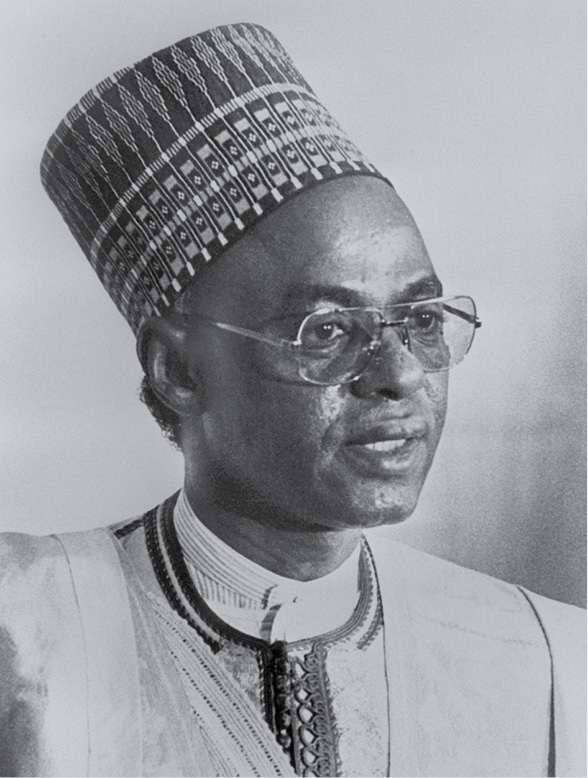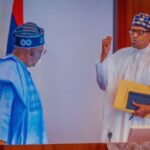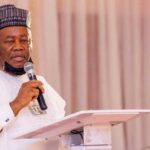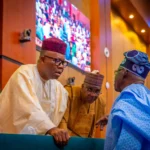Alhaji Shehu Shagari, who died at the National Hospital, Abuja last night at the age of 94, was President of the Federal Republic of Nigeria for the entire four years and three months of the Second Republic, 1979-83. He was elected to the top job in August 1979 on the platform of the National Party of Nigeria, NPN, which elected him as its flagbearer in November 1978. Shagari beat five contenders to the clinch the NPN ticket, namely Alhaji Yusuf Maitama Sule, Malam Adamu Ciroma, Dr. Sola Saraki, Chief Joseph Tarka and Prof Iya Abubakar. He was a member of the Constituent Assembly that ratified the 1979 Constitution in 1977-78 and was a founding member of NPN.
Even before that, Shagari had a distinguished career of service to the country at Native Authority, Sokoto Provincial, Northern Regional, North Western State, Federal, Yabo Local Government, Sokoto State and again at the federal levels. His date of birth at his native Shagari village in Sokoto State was once placed at February 1925 but he later changed it to December 1924, based on a visit to Sokoto of his father at the time he was born. His father Aliyu was the Magajin Shagari, i.e. village. He died five years after Shagari’s birth, and the future president was then brought up by his elder brother Muhamamdu bello, who died in 1984.
Alhaji Shehu attended Yabo Elementary School in 1931-1935.He then went to Sokoto Middle School in 1936-40, Government College, Kaduna [which later became Barewa College, Zaria] in 1941-44. He worked as a teacher [of Science and Geography] in the later 1940s and early 1950s, during which he produced a song called Wakar Nigeria which was very popular in the North at that time. He entered politics in 1951 and was the secretary of the Northern Peoples Congress [NPC] in Sokoto Province. He was elected to the House of Representatives, Lagos in 1954 from Sokoto West constituency.He was also a member of the Federal Scholarship Board from 1954-1958.He became parliamentary secretary to the Prime Minister, Sir Abubakar Tafawa Balewa in 1956. He then held a string of seven ministerial posts in the First Republic and the succeeding military government.
He was Federal Minister for Commerce and Industries in 1958-9; Minister of Economic Development in 1959-1960; Minister of Pensionsin 1960-1962; Minister of Internal Affairs in 1962-65 and was Minister of Works from 1965 until the overthrow of the First republic in January 1966.
In 1967 he becameSecretary of the SokotoProvince Education Development Fund, which built many schools including the Ahmadu Bello Academy on Sokoto. He became Commissioner for Establishments in the North Western State in 1968-1969.In 1970, General Yakubu Gowon appointed him the FederalCommissioner for Economic Development, Rehabilitation and Reconstruction and the following year he replaced Chief Obafemi Awolowo as federal Commissioner for Finance.He was also a governor for the World Bank and International Monetary Fund, IMF. He left the position after Gowon’s overthrow in 1975.
Shagari was elected Councillor of Yabo Local Government in the first local government elections of 1976. He was also the Chairman of Sokoto Urban Development Authority [SUDA], which built the new Sokoto market. As President, Shagari pursued NPN’s manifesto of “Food and Shelter.” It was in pursuit of that that he launched the Green Revolution program in 1980 and also built what became known as the Shagari Housing Estates in all state capitals of the time. Oil prices plummeted in 1981 and forced him to declare the “austerity” measures. Shortly after he won a second term in 1983, soldiers overthrew the Second Republic. He was in detention for several years, after which he returned to live a quite life in Sokoto and Shagari. He held the traditional title of Turakin Sokoto from 1962 until his passing last night, and was appointed a full-time member of the Sultan’s Council in 1996.

 Join Daily Trust WhatsApp Community For Quick Access To News and Happenings Around You.
Join Daily Trust WhatsApp Community For Quick Access To News and Happenings Around You.


